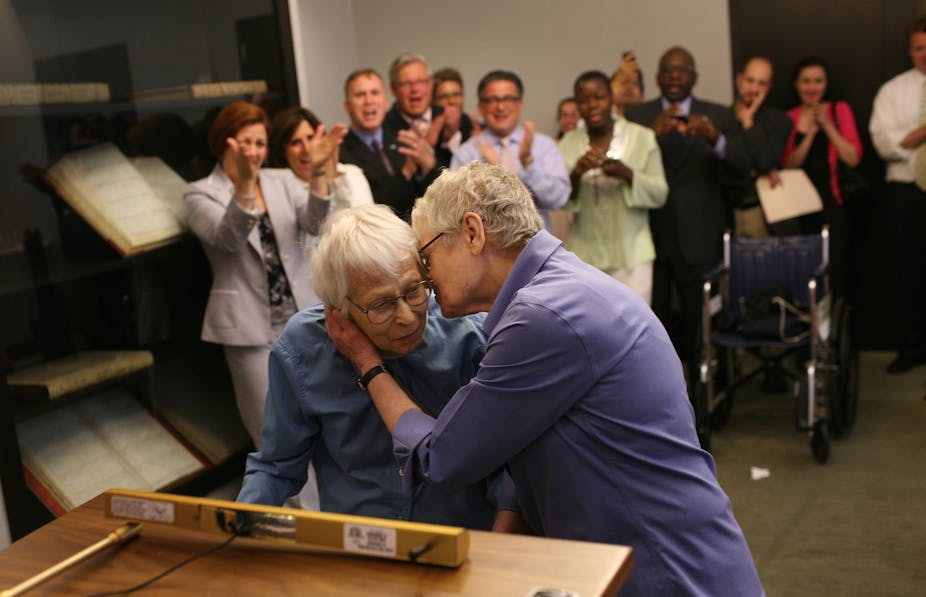I personally experienced the full necessity for marriage equality only recently. In the sunny town of Lamego, Portugal, my dear friend Nina was married to her beloved Marcos. She was the first of my friends to be married.
Witnessing her exchange vows with the one she loved surrounded by her friends and family, many of whom, like me, had travelled far and wide to be there, was a moment of pure love, joy and affection. This is something I wish to experience one day, like my parents did 32 years ago.
The fight for marriage equality here in Australia has recently gained ground with the news that the Tasmanian Labor government has vowed to act on marriage inequality.
Tasmanian Premier Lara Giddings has said that if the federal government doesn’t pass same-sex marriage this year, then her government will endeavour to do so. It is unclear whether she will be successful, but the endeavour is one to be praised.
The consequences of Tasmania allowing same-sex couples to marry will be far reaching. These ripple effects are more than just the economic boost the pink dollar would bring to Tasmania’s tourism industry.
Using wedlock to break the deadlock
First, the move will shed new, negative light on the frustrating situation Julia Gillard has put her government in over the issue. This will be well-deserved. Gay marriage in Tasmania will dramatically increase pressure on the federal government to act.
At the Labor State Conference, Giddings stated:
Just as we have responded to other forms of discrimination throughout history, there comes a time when no amount of excuses should stand in the way of doing what is right.
Gillard’s excuses, and her pandering to the Australian Christian Lobby and conservative union bosses, such as Joe de Bruyn, will be shown for what they are: co-opting civil rights in the pursuit of power.
States of the (civil) union
Tasmania will also set an example for other states to follow.
Premier Campbell Newman’s conservative Queensland government will seem even more socially regressive. His amending civil union laws, along with his government’s failure to scrap the “gay panic” defence and the withdrawal of funds from the Queensland Association for Healthy Communities has lead The Star Observer’s Drew Sheldrick to label this the “most significant attack on gay and lesbian rights in the Western world”.
A comparison between Tasmania’s socially progressive image and Queensland’s lack thereof will only further drive Queenslanders to voice their discontent.

When I was abroad recently I was quite surprised to find that various Europeans I had met assumed we had marriage equality here in Australia. Being able to get married in Tasmania will bring Australia closer to the esteemed company of other countries who allow gay marriage. Argentina, Belgium, Canada, Denmark, Iceland, the Netherlands, Norway, Portugal, Spain, South Africa and Sweden all do.
While having one state that allows same-sex marriage doesn’t match these countries, it is at least a start.
Happily ever after
Finally, and indeed most important, are the wider social implications.
By legislating equal social recognition for same-sex couples, a supportive social environment is created for young people who feel insecure and unsure of their sexual and gender identity.
Marriage equality is by no means the end goal. Support groups and strategies to fight homophobia in schools are other essential means to help support our young people. But removing the ban on same-sex marriage will undoubtedly help fight the stigma associated with being gay.
I sincerely look forward to all the snapshots of newly married couples celebrating their right to tie the knot because, ultimately, the biggest consequence of Tasmania passing equality will be that there won’t be very many drastic changes at all, aside from these moments of pure love, affection and joy.
Many opponents, who are worried this move will erode the institution of marriage, need only to look at these photos and see that indeed the sky isn’t falling. In the end, it’s really just about happiness.

